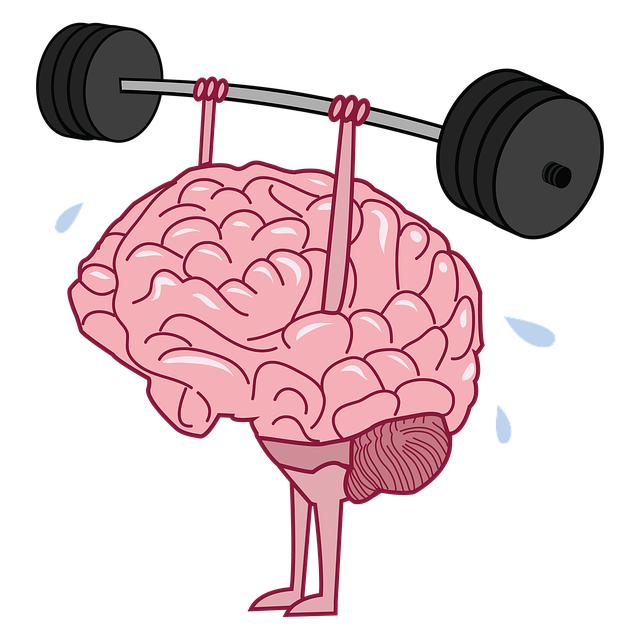Depression often stems from psychological states interacting with external factors like major life transitions in Lone Tree. These changes can trigger emotional shifts and overwhelm, leading to depression if unaddressed. Therapy is vital for managing these periods, teaching coping skills through evidence-based practices such as CBT or IPT to identify and challenge negative thoughts, enhance coping strategies, and build resilience. Self-care practices like physical activity, balanced diet, and relaxation are key, along with Lone Tree major life transitions therapy, to prevent depression and promote emotional well-being during challenging times.
Depression prevention isn’t just about chasing happiness; it’s about equipping ourselves with tools to navigate life’s inevitable challenges. This article explores a multi-faceted approach to safeguarding mental health, especially during major life transitions. We delve into the connection between depression and life shifts, highlighting the power of therapy as a preventive measure in the face of Lone Tree’s demanding times. Additionally, we provide practical strategies for building resilience and fostering coping skills that can fortify against depressive episodes.
- Understanding Depression and Its Connection to Life Transitions
- The Role of Therapy in Preventing Depression During Challenging Times
- Practical Strategies for Building Resilience and Coping Skills
Understanding Depression and Its Connection to Life Transitions

Depression often emerges as a complex interplay between an individual’s psychological state and external factors, with major life transitions serving as significant triggers. These transitions, such as moving to a new city (Lone Tree), losing a job, or experiencing the death of a loved one, can lead to profound emotional shifts. During these times, individuals may feel overwhelmed by the demands of adapting to change, causing stress and potentially leading to depression if left unaddressed.
Therapy plays a pivotal role in navigating these challenging periods. Coping skills development through therapy equips individuals with tools to manage stress reduction methods effectively. Moreover, organizations offering Stress Management Workshops can provide valuable resources, enabling people to proactively embrace life transitions instead of letting them become catalysts for depression.
The Role of Therapy in Preventing Depression During Challenging Times

Depression prevention isn’t just about coping mechanisms; it’s deeply intertwined with emotional healing processes and involves seeking professional guidance during challenging times. Therapy plays a pivotal role in equipping individuals with the tools to navigate through life’s twists and turns, especially during major life transitions that can significantly impact mental health. A therapist facilitates a safe space for clients to explore their emotions, fostering understanding of underlying issues contributing to depressive episodes.
Through evidence-based practices like cognitive behavioral therapy (CBT) or interpersonal psychotherapy (IPT), therapists teach individuals the art of identifying and challenging negative thought patterns, enhancing coping strategies, and building resilience. By integrating mind over matter principles, these therapeutic approaches empower clients to manage stress, improve self-esteem, and cultivate a more positive outlook. Moreover, risk management planning for mental health professionals is crucial in proactively identifying at-risk clients and implementing appropriate interventions, ensuring early detection and effective treatment of depression.
Practical Strategies for Building Resilience and Coping Skills

Building resilience is a crucial component of depression prevention, especially during challenging times like major life transitions. Practicing self-care becomes an essential tool in this process. Engaging in regular physical activity, maintaining a balanced diet, and allocating time for relaxation can significantly enhance emotional well-being. These simple yet effective self-care practices not only provide short-term relief but also strengthen one’s ability to cope with stress.
Additionally, therapy plays a pivotal role in fostering resilience. Cognitive Behavioral Therapy (CBT), for instance, equips individuals with valuable coping skills and reframing techniques. By learning to identify and challenge negative thought patterns, individuals can navigate life’s curveballs with greater ease. Social Skills Training, another beneficial approach, encourages connection and support networks, which are vital during times of stress or major life changes, like a lone tree standing tall against the wind. These strategies empower individuals to face challenges head-on and promote emotional healing processes.
Depression prevention is a proactive approach that involves understanding life transitions, leveraging therapy, and adopting practical strategies. By recognizing the connection between major life events and mental health, individuals can fortify their resilience. Lone Tree Major Life Transitions Therapy offers valuable tools to navigate challenging times, fostering coping skills and promoting well-being. Embracing these strategies enables people to not only prevent but also manage depression effectively, ultimately enhancing their overall quality of life.














